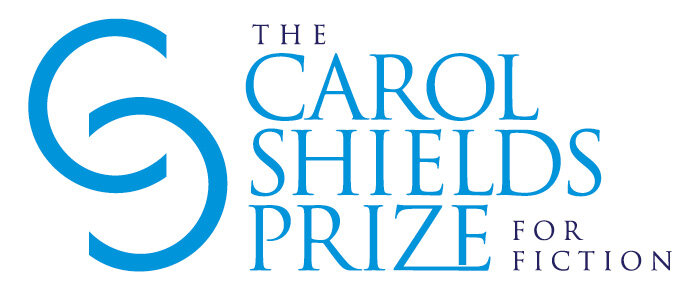Running for the Roses: Why Winning’s Not All Bad
By Emily Donaldson
Since the founding of the Nobel Prize for Literature in 1901, literary prizes have proliferated at what sometimes seems like an exponential rate. Name a genre or speciality, no matter how obscure, and there’s likely a prize for it. And the snowballing continues. This October alone saw the announcement of two new major prizes: the $25,000 Ursula K. Le Guin Prize, recognizing a single book-length work of imaginative fiction that “reflects themes and ideas central” to the late author’s work, and the $60,000 Balsillie Prize for Public Policy, which awards works of nonfiction that advance and influence policy debates on “a wide range of topics relevant to Canadians.” Next year, of course, the $150,000 Carol Shields Prize will enter the fray and officially become the largest prize, monetarily speaking, for a work of fiction published in English by a woman.
Into this awards-drenched landscape have come critiques of so-called Prize Culture that raise a number of legitimate questions; among them: Can works of literature really be graded and ranked, as in a horse race or ice-skating competition? On what basis should literary worth even be assigned? And, perhaps most crucially, who should we charge with doing that assigning given that literary judgments are, by nature, subjective?
And, perhaps most crucially, who should we charge with doing that assigning given that literary judgments are, by nature, subjective?
Some writers, uncomfortable with the position contending, or winning, puts them in, choose to bow out of the race completely. Jean-Paul Sartre famously declined the Nobel for reasons related to personal autonomy (the very meta Jean-Paul Sartre Prize for Prize Refusal, awarded to those who, well, refuse prizes, has, on the other hand, never been refused). Michael Ondaatje and Alice Munro (an eventual Nobel winner) withdrew books on separate occasions from Giller Prize consideration, albeit for different reasons than Sartre. Having both won the prize (and many others) previously, the authors were making clear their desire to make room for younger writers.
As those examples suggest, however, those who refuse prizes tend, in the balance, to be in a position—economic, cultural—to do so. And as space devoted to books and reviews continues to shrink alarmingly in newspapers and other publications, prizes, like it or not, are arguably assuming even greater cultural importance for their ability to draw public attention to new books; specifically, those books juries deem we should value and read.
Sometimes forgotten amidst the controversies, however, are the tangible benefits prize-winning can have on individual writers, especially those who are young or unestablished. We’re talking here less about limousines and caviar, nice as those things are, and more about the practicalities of keeping the heat on and, more crucially, buying the space and time necessary to do the thing expected of a prize-winning writer: write another book.
We’re talking here less about limousines and caviar, nice as those things are, and more about the practicalities of keeping the heat on and, more crucially, buying the space and time necessary to do the thing expected of a prize-winning writer: write another book.
In 2018, Irish writer Caitriona Lally won the prestigious €10,000 Rooney Prize, at age 39, for her book Eggshells. The prize was awarded by her employer, Trinity College Dublin, where Lally worked, not as a professor, but as a janitor. Though the win gobsmacked her—Lally hadn’t submitted for the award, which selects its own nominees—she had no hesitation stating what she’d do with her winnings, namely, pay for her daughter’s day care and buy a water tank for her attic.
The $60,000 that came with Casey Plett’s winning of the 2019 Amazon First Novel Award, for her book Little Fish, allowed the 34-year-old Manitoba-born author to quit her day job promoting other writers’ books as a publicist at publisher Biblioasis and focus fully on her own. “It was a literal life-changing amount of money and changed the direction of my writing capability, there’s no ambiguity about it,” Plett said from Brooklyn, where she now lives. The decision to quit paid off. This year, Plett’s short-story collection A Dream of a Woman, which she says was directly the result of her Amazon win, found its way onto the Giller longlist.
In 2018, Irish writer Anna Burns won a veritable slew of prizes, among them the £50,000 Booker and the €100,000 International Dublin Literary Award, for her third novel, Milkman, when she was 56. Burns, who hearkens from working-class roots in Belfast, described the experience as “life-changing.” Just a few years previously, she’d been suffering from chronic pain, serially house-sitting for shelter and visiting food banks to feed herself. “It’s nice to feel I’m solvent. That’s a huge gift,” she told the Guardian.
And despite her outspoken stance against women’s prizes, American author and controversialist Lionel Shriver’s career breakthrough came after she won the Orange Prize (now the Women’s Prize for Fiction) in 2005 for her eighth novel, We Need to Talk About Kevin, whose sales surpassed the million mark over a decade ago. At the time, Shriver reluctantly conceded that the prize had done, “what prizes are supposed to do—that is, to draw cultural attention to someone hitherto unknown and working very hard, which is why in my acceptance speech for the prize I said that there were a large population of such people.”
Shriver reluctantly conceded that the prize had done, “what prizes are supposed to do—that is, to draw cultural attention to someone hitherto unknown and working very hard, which is why in my acceptance speech for the prize I said that there were a large population of such people.”
The benefits of prize-winning aren’t always just economic, nor do they apply only to fledgling writers. British-Canadian author Kathy Page says the most significant impact of winning her first major award at age 60—the Writer’s Trust, for her own eighth novel, Dear Evelyn—was psychological. “Over the years I had become fairly philosophical about prizes in general as well as about being a frequent finalist or ‘listed’ type of writer: Women’s Prize, GG, Giller twice, BC book prizes twice, and others,” says Page. “I felt that there was zero possibility of me winning the Rogers Writer’s Trust Award—naturally, doing so was a wonderful surprise. And, likewise, the Butler Prize. It meant, and means, a great deal to me to have that recognition from peers, along with consequent attention from reviewers. I feel it validates what I achieved in Dear Evelyn, which was a very personal and technically as well as emotionally difficult book to write. I’ve been seriously ill for the past two years, and unable to work in my usual way. I find it has made that more bearable, too!”
Souvankham Thammavongsa used to think prizes were “divisive and unfair and ugly” until she memorably won the Giller Prize last year in her living room on live TV, smack in the middle of the pandemic. During her previous 25 years toiling in the literary trenches, primarily as a poet, Thammavongsa had won prizes, but nothing on the scale of the Giller (she also went on to win the $20,000 Trillium Book Award). As a refugee who was born in a Lao refugee camp and grew up in a home without books, and who doesn’t possess an MFA, she considers herself an unlikely winner. Her winning short-story collection, How to Pronounce Knife, she says, is “about people who don’t win prizes.”
And yet Thammavongsa has since experienced firsthand “how lovely it can be... I would wish the Giller on anybody.” While it’s possible, she says, to “make meaningful work without a crown and without anyone’s say-so” the Giller not only brought greater attention to her writing, it made people listen to her differently. “[People] are discovering my writing for the first time and wondering why they haven’t heard of me before. They don’t ask me if what I do is in English anymore. They don’t ask me where they can buy my book because it is everywhere. My parents hear about me in the evening news now. Universities and monied institutions and organizations aren’t hesitant with their invitations anymore or stingy or reluctant with their compliments and praise. It is often the case that when you win the Giller, you get published in America and the UK a year later, but I already had publishers there, so I didn’t need the prize to do that for me.”
… the Giller not only brought greater attention to her writing, it made people listen to her differently. “[People] are discovering my writing for the first time and wondering why they haven’t heard of me before. They don’t ask me if what I do is in English anymore. They don’t ask me where they can buy my book because it is everywhere.”
At the same time, Thammavongsa doesn’t want her win to measure the value of what she does. She’s aware that prizes, and their impact, aren’t forever. “What is a hundred thousand dollars? Professors with tenured jobs make this every year, an investor can make this in ten minutes for their client. You can squander that on bad habits or be frivolous with it.”
For her, a significant source of happiness was the effect her winning had on others: “I saw so much cheer. Those who have known my writing all these years amplified their love. Strangers, people who bought books I used to make for fifty cents and sold out of my school knapsack, booksellers, my elementary school teachers, literary magazines who plucked my writing from their slush piles years ago, diplomats in Tanzania, Singapore, my dentist, government workers, a girl who lived in a village with only one newspaper... excited and inspired. I felt like I was elected president. It made me think of the streets of Toronto when the Raptors won. I know sports and politics can do that to people, but not Canadian literature.
“I don’t know if it was the prize or my story of the prize or the prize’s ability to make you visible or maybe it was television. I hadn’t seen that kind of reaction for a Giller winner before. Writers win prizes every day, but we don’t always hear about them. Maybe it was what I said that night after I won. It resonated with people from all walks of life. My face was printed on tote bags and commemorative cups were made of the phrase ‘Anita Chong, Anita Chong, Anita Chong!* Not too bad for two girls who were in ESL.’ People pay good money for that kind of reaction for their celebrity clients or to set an algorithm to create that kind of response for a book. I was no one and it happened organically, brought about by ordinary people sitting in their living room.
“During all of that, I made a point to think of the writer who isn’t here, who didn’t win, who came close. The writer who keeps writing. I think a prize doesn’t make you a writer. Writing makes you a writer. I didn’t need a prize to give me that.”
“During all of that, I made a point to think of the writer who isn’t here, who didn’t win, who came close. The writer who keeps writing. I think a prize doesn’t make you a writer. Writing makes you a writer. I didn’t need a prize to give me that. It’s not a big deal to be a refugee or an immigrant. Everyone I know is one. It’s a big deal to be a writer. A prize can give you that.”
*Anita Chong was Thammavongsa’s editor at McClelland & Stewart

